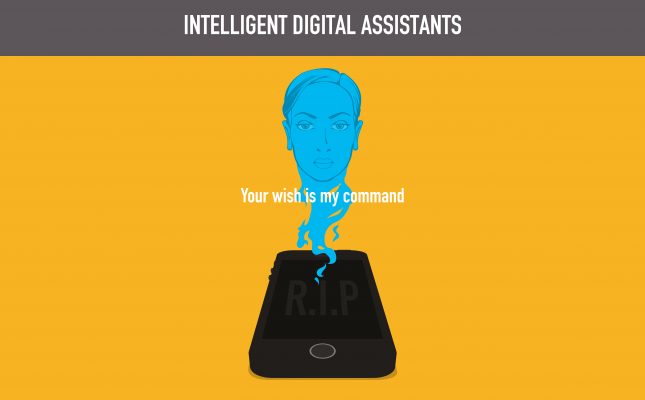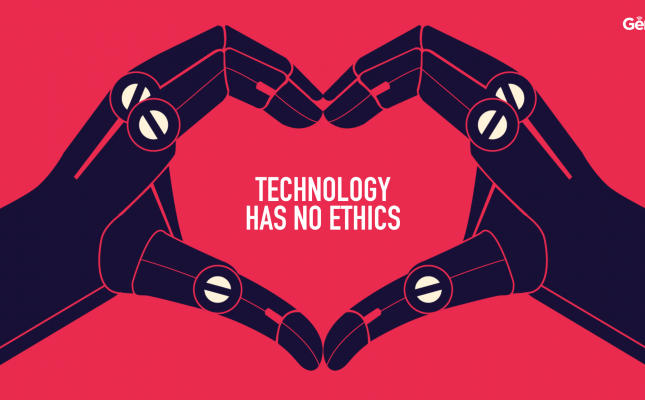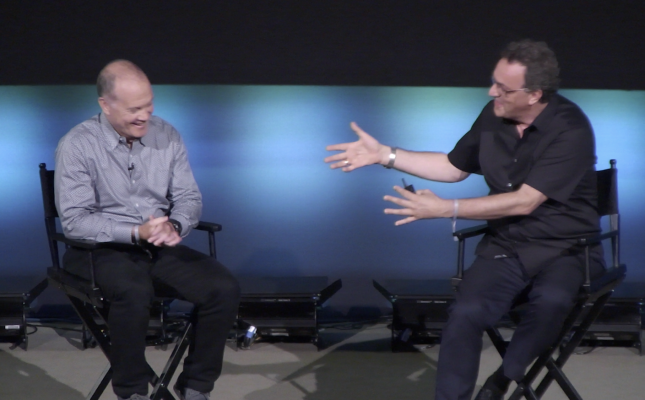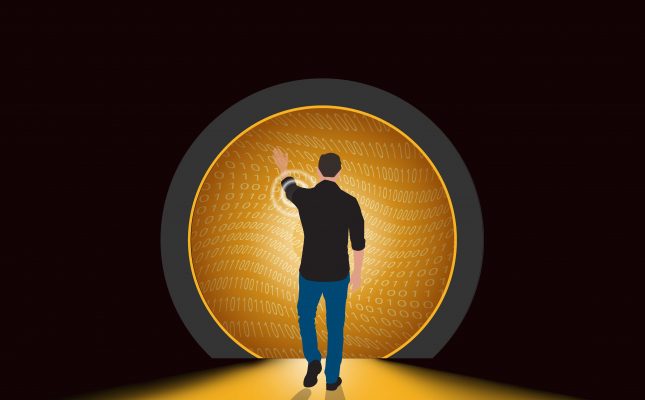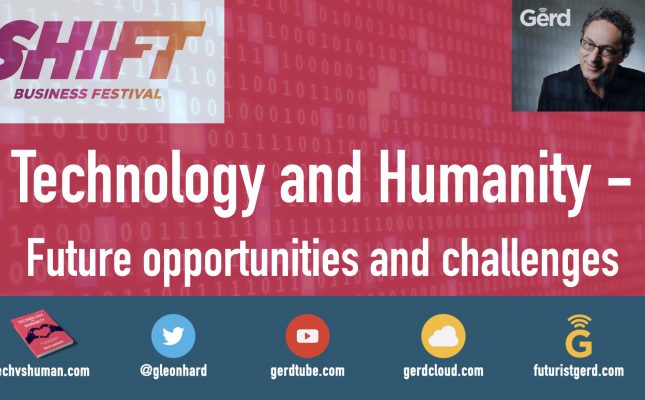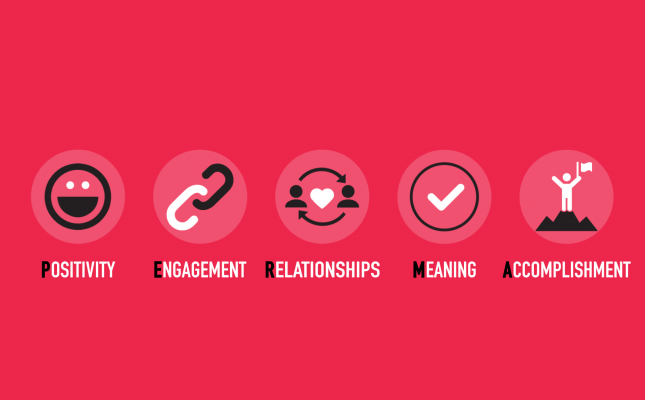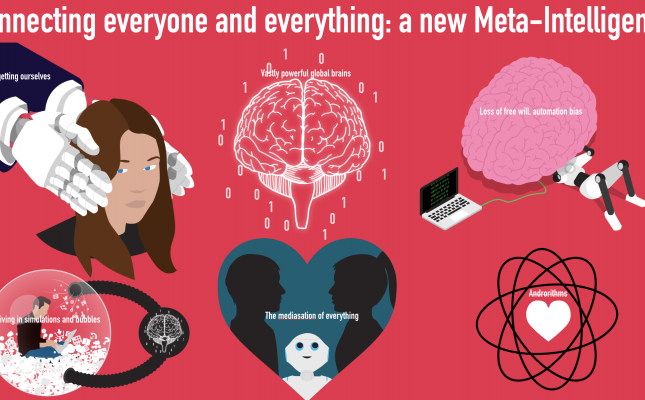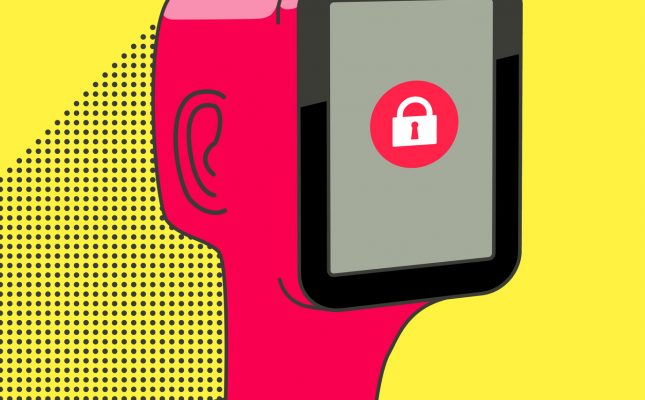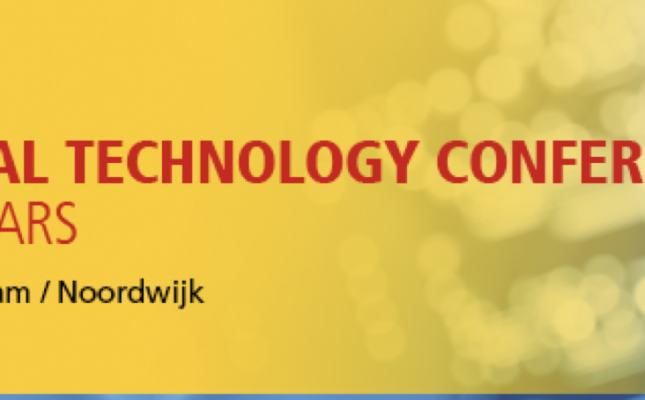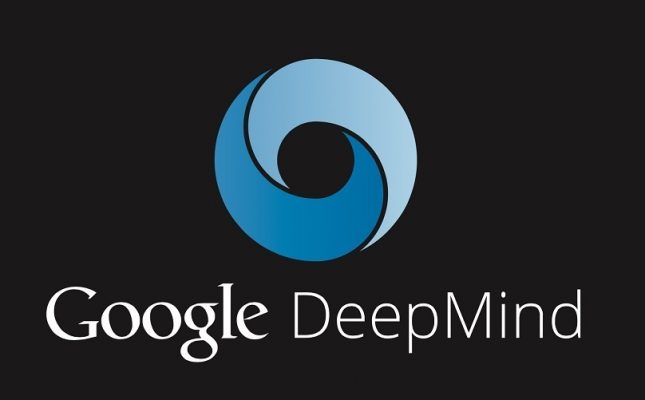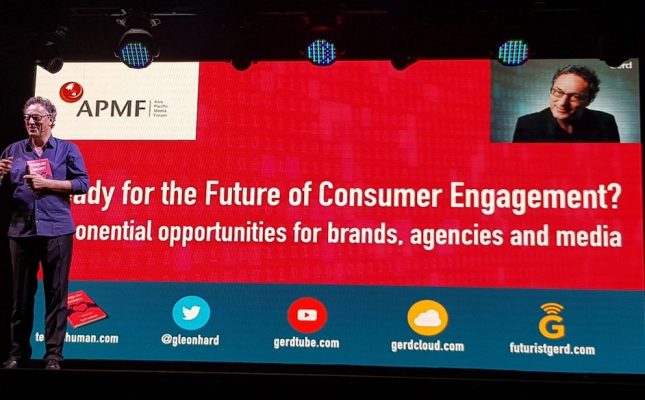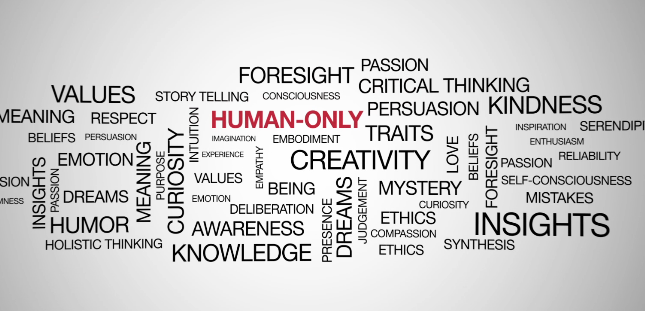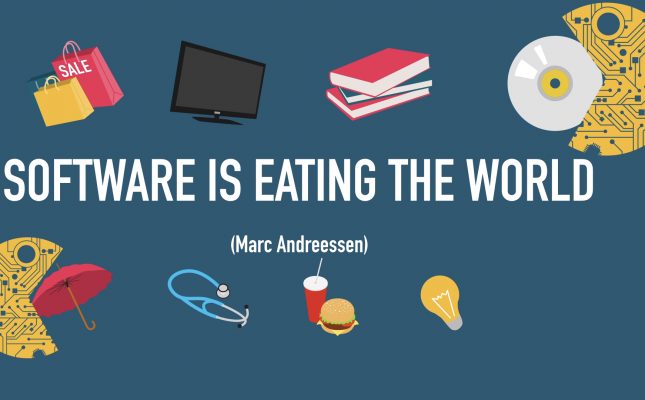Category: Technology and Humanity
Meet Futurist Gerd Leonhard in London October 4: Keynote at BREAKOUT2017: Ethical codes for a digital age
I am delighted to be able to contribute to this unique event in London, on October 4 2017 (for more details and updates go here). My keynote will be on AI and other exponential technologies, in the context of digital ethics. Get your tickets. Digital technologies are disrupting the world around us. Shaping societies, worldviews … Continue reading "Meet Futurist Gerd Leonhard in London October 4: Keynote at BREAKOUT2017: Ethical codes for a digital age"
Read moreI invested early in Google and Facebook. Now they terrify me (great piece by Roger McNamee)
"The people at Facebook and Google believe that giving consumers more of what they want and like is worthy of praise, not criticism. What they fail to recognize is that their products are not making consumers happier or more successful. Like gambling, nicotine, alcohol or heroin, Facebook and Google — most importantly through its YouTube subsidiary — produce short-term happiness with serious negative consequences in the long term. Users fail to recognize the warning signs of addiction until it is too late. There are only 24 hours in a day, and technology companies are making a play for all them. The CEO of Netflix recently noted that his company’s primary competitor is sleep. How does this work? A 2013 study found that average consumers check their smartphones 150 times a day. And that number has probably grown. People spend 50 minutes a day on Facebook. Other social apps such as Snapchat, Instagram and Twitter combine to take up still more time. Those companies maintain a profile on every user, which grows every time you like, share, search, shop or post a photo. Google also is analyzing credit card records of millions of people. As a result, the big Internet companies know more about you than you know about yourself, which gives them huge power to influence you, to persuade you to do things that serve their economic interests. Facebook, Google and others compete for each consumer’s attention, reinforcing biases and reducing the diversity of ideas to which each is exposed. The degree of harm grows over time."
https://www.usatoday.com/story/opinion/2017/08/08/my-google-and-facebook-investments-made-fortune-but-now-they-menace/543755001/
Sent from Pocket


Why Voice Assistants Will Give You a Headache (great read via Backchannel / Wired)
This might sound like heaven to you—or, just as likely, hell. Either way, it’s about to be our reality.
When Amazon introduced Alexa, the tech industry quickly anointed voice as the next big thing. Sure, she was mostly reciting the weather and answering lewd questions from nine-year-old boys, but the future held much more. The rise of voice devices will rewrite the digital playbook in unpredictable ways—including how, when, and whether we have the ability to say, “Enough!” In a time when digital detoxing, unplugging, and disconnecting are widely discussed and even yearned for, voice could turn into the platform you can’t turn off.
As we currently experience them, voice assistants are passive devices. We call their names when we have a question, want to hear some music, or need to set a timer. Otherwise, they sit idle. Having Alexa operate the light switch for you, for example, isn’t a source of psychological stress. But it’s when these assistants begin actively demanding our time and attention that, some experts say, we’ll have a problem on our hands.”
Why Voice Assistants Will Give You a Headache | Backchannel
https://www.wired.com/story/why-voice-assistants-will-give-you-a-headache/
via Instapaper

Why Mercedes’ decision to let its self-driving cars kill pedestrians is probably the right thing to do (says Bloomberg )
Although the fact someone has to make this choice feels uncomfortable, it would be more dangerous if they didn't, because unless a self-driving vehicle is told what to do when a child runs into the road, it won't do anything.
Previously, manufacturers have been quiet about what would happen under these circumstances, until Mercedes-Benz's announcement at the Paris Auto Show this month. According to von Hugo, all of the company's future Level 4 and Level 5 self-driving cars will be programmed with the decision to save the people they carry over anything else.
"If you know you can save at least one person, at least save that one. Save the one in the car," von Hugo said in the interview. "If all you know for sure is that one death can be prevented, then that's your first priority."”
Why Mercedes’ decision to let its self-driving cars kill pedestrians is probably the right thing to do
https://nordic.businessinsider.com/mercedes-benz-self-driving-cars-programmed-save-driver-2016-10/
via Instapaper

The age of AI surveillance is here (via QZ.com – made me think)
US governments are already beginning to use the technology in a limited capacity. Last week the New York department of motor vehicles announced that it had made more than 4,000 arrests using facial recognition technology. Instead of scanning police footage, the software is used to compare new drivers’ license application photos to images already in the database, making it tougher for fraudsters to steal someone’s identity. If state or federal governments expand into deploying facial recognition in public, they will already have a database of more than 50% of American adults from repositories like DMVs. And again, the bigger the dataset, the better the AI.”
The age of AI surveillance is here
https://qz.com/1060606/the-age-of-ai-surveillance-is-here/
via Instapaper


Anything that can be digitised or automated, will be – but anything that cannot will become extremely valuable (new gif)
Download the .mov file: anything digitized or not useless humans vs androrithms final Read more about Androrithms (that which cannot be digitised)
Read moreNew video: Futurist Gerd Leonhard in conversation with AT&T’s John Donovan (AT&T Shape LA)
John Donovan (AT&T’s Chief Strategy Officer and Group President) and me had a pretty cool chat about technology, connectivity, media, creativity and humanity – check it out below. I love John’s statement ‘…I guess it is fair to say that you are an optimist”. Indeed. More details about the event here (includes the video of my … Continue reading "New video: Futurist Gerd Leonhard in conversation with AT&T’s John Donovan (AT&T Shape LA)"
Read moreWhy the Singularity is certain to happen in my own lifetime, and how it matters (Futurist/Humanist Gerd Leonhard)
I recently came to an important realisation: I will most likely see the so-called Singularity happen in my own lifetime. I’m 56, and I believe that this inflection point at which computers, ‘thinking machines’ and AI become infinitely and recursively powerful is no more than 20-25 years away, at most – and it might be … Continue reading "Why the Singularity is certain to happen in my own lifetime, and how it matters (Futurist/Humanist Gerd Leonhard)"
Read moreVideo and slide-deck of my keynote at SHIFT 2017, Turku Finland: technology vs humanity.
It’s always great to speak in Finland, and being at the SHIFT 2017 event was a great pleasure, as well. Below is my deck from my talk; we will have a video available soon, as well. Btw: if you sign up for shift 2017 right now you can win a free copy of my book:) We should … Continue reading "Video and slide-deck of my keynote at SHIFT 2017, Turku Finland: technology vs humanity."
Read moreMartin Seligman: We Aren’t Built to Live in the Moment (why we are all futurists) via NYT
A more apt name for our species would be Homo prospectus, because we thrive by considering our prospects. The power of prospection is what makes us wise. Looking into the future, consciously and unconsciously, is a central function of our large brain, as psychologists and neuroscientists have discovered — rather belatedly, because for the past century most researchers have assumed that we’re prisoners of the past and the present.”
Opinion | We Aren’t Built to Live in the Moment
https://www.nytimes.com/2017/05/19/opinion/sunday/why-the-future-is-always-on-your-mind.html
via Instapaper
Human ingenuity will be the genesis for IoT prosperity: thoughtful piece by Jeanne Beliveau-Dunne (Cisco)
We explored this topic in depth at the recent IoT World Forum in London, where renowned futurist Gerd Leonhard provided us a stunning window into the ethics of IoT and the critical role of human ingenuity in designing and shepherding its outcomes. (Watch the replay of Gerd’s keynote, moderated by Cisco’s CMO, Karen Walker: “Beyond Business: A Holistic View of the Societal and Human Impact of IoT.”)
As the IoT World Forum team put its agenda together for an influential community of C-suite executives in London, there was a realization that we needed to address this topic, as provocative (and sobering) as it might be. We recognized that we had to acknowledge the “elephant in the room”: that we are in unchartered territory, as we enter into this new era of exponential change together. When we think about what the implications are of a rapid surge in IoT innovation, we must all collectively consider the potential effects on the geopolitical and global economic landscape (in both advanced and developing nations); on global challenges such as wealth inequality, aging populations, healthcare, and the environment; and on the global workforce. Of course, no one has all the answers, but we must be bold in exploring these issues as a global business community. I will explore this in more depth in my next blog, but I will say that we know we need a global unified approach to succeed. No one can go it alone, and a “head in the sand” mentality is not an option.”
Human ingenuity will be the genesis for IoT prosperity
https://www.cio.com/article/3212868/digital-transformation/human-ingenuity-and-iot-prosperity.html
via Instapaper
Have Smartphones Destroyed a Generation? Some serious food for thought via The Atlantic
The advent of the smartphone and its cousin the tablet was followed quickly by hand-wringing about the deleterious effects of “screen time.” But the impact of these devices has not been fully appreciated, and goes far beyond the usual concerns about curtailed attention spans. The arrival of the smartphone has radically changed every aspect of teenagers’ lives, from the nature of their social interactions to their mental health. These changes have affected young people in every corner of the nation and in every type of household. The trends appear among teens poor and rich; of every ethnic background; in cities, suburbs, and small towns. Where there are cell towers, there are teens living their lives on their smartphone.
To those of us who fondly recall a more analog adolescence, this may seem foreign and troubling. The aim of generational study, however, is not to succumb to nostalgia for the way things used to be; it’s to understand how they are now. Some generational changes are positive, some are negative, and many are both. More comfortable in their bedrooms than in a car or at a party, today’s teens are physically safer than teens have ever been. They’re markedly less likely to get into a car accident and, having less of a taste for alcohol than their predecessors, are less susceptible to drinking’s attendant ills.
Psychologically, however, they are more vulnerable than Millennials were: Rates of teen depression and suicide have skyrocketed since 2011. It’s not an exaggeration to describe iGen as being on the brink of the worst mental-health crisis in decades. Much of this deterioration can be traced to their phones.”
Have Smartphones Destroyed a Generation? - The Atlantic
https://www.theatlantic.com/magazine/archive/2017/09/has-the-smartphone-destroyed-a-generation/534198/
via Instapaper
New video: Futurist Gerd Leonhard’s Keynote at DHL Global Technology Conference 2017. Shifting Gears: Technology and Humanity
A big thank you to DHL for inviting me and for making this recording available ! Download the PDF with my slides: Shifting gears technology humanity the future shared deck gerd leonhard DHL Global Tech Download this, and many other videos, via GerdCloud, my Public Cloud:)
Read moreThe Real Risks of AI – via NewCo Shift (food for thought)
Such a lack of mutual understanding is where all of the real risks reside. This is what should be talking about when we talk about worst case scenarios. We erroneously assume that we will be able to recognize AGI as such.”
The Real Risks of AI – NewCo Shift
https://shift.newco.co/the-real-risks-of-ai-86d031151798
via Instapaper
The DeepMind debacle demands dialogue on data – AI will falter without a public consensus around the role of data
Public dialogue can build trust through collaborative efforts. A 14-member Citizen's Reference Panel on health technologies was convened in Ontario, Canada in 2009. The Engage2020 programme incorporates societal input in the Horizon2020 stream of European Union science funding.”
The DeepMind debacle demands dialogue on data
https://www.nature.com/news/the-deepmind-debacle-demands-dialogue-on-data-1.22330
via Instapaper

Gerd Leonhard’s slide-deck and presentation: APMF Jakarta July 25: exponential change, technology, humanity and media
Here it is! Thanks for your interest. More about the APMF APMF Jakarta Technology Humanity and Media Futurist Gerd Leonhard PUBLIC low res 17 MB PDF Coming this July 25, 2017, APMF presents a session by Gerd Leonhard, world’s renowned futurist to share his views on the opportunity that lies for brands, agencies and media … Continue reading "Gerd Leonhard’s slide-deck and presentation: APMF Jakarta July 25: exponential change, technology, humanity and media"
Read moreWhat are ‘Androrithms’ – a key meme from Gerd Leonhard’s new book Technology vs Humanity’
We just made a new gif for this meme – see below (re-use is ok – subject to creative commons license). Read more at www.androrithms.com or here
Read moreHere is my presentation from Handelsblatt C-Suite 2017 in Berlin, yesterday (in German / auf Deutsch)
Here is the PDF from yesterday . sorry for the delay in posting this:) Handelsblatt csuite berlin technology humanity gerd leonhard PUBLIC German Technology Vs. Humanity − Kick Off-Session Auf welche Megashifts müssen wir uns einstellen? Wie sieht die Welt in 15 Jahren aus? Gerd Leonhards Kick Off „Technology vs. Humanity“ analy- siert, wie die … Continue reading "Here is my presentation from Handelsblatt C-Suite 2017 in Berlin, yesterday (in German / auf Deutsch)"
Read moreBe Aware, Be Very Aware (Tristan Harris Podcast)
“… persuasion is kind of like that. There is something that can subvert my architecture. I can’t close the holes that are in my brain, they are just there for someone to exploit. The best I can do is to become aware of some of them, but then I don’t want to walk around the world being just vigilant all the time of all the ways my buttons are being pressed.”
Tristan Harris says there’s a whole industry dedicated to this “dark art form” that people are not aware of. Consider, for example, that many people, when asked about the rise of big data, are not really all that alarmed that their personal data is out there. The familiar response is: “I’ve got nothing to hide.” But if they realized that this data is used to feed the attention economy and the underlying methods of persuasion that come with it they might be more concerned. What if this dedicated group of engineers develops a type of artificial intelligence that literally knows how to persuade you to do anything?”
Be Aware, Be Very Aware – Slaw
https://www.slaw.ca/2017/06/26/be-aware-be-very-aware/
via Instapaper

Must watch video from 2015 but still spot-on: digital ethics and the future of humans in a connected world. Gerd Leonhard at Tedx Brussels
Read more



